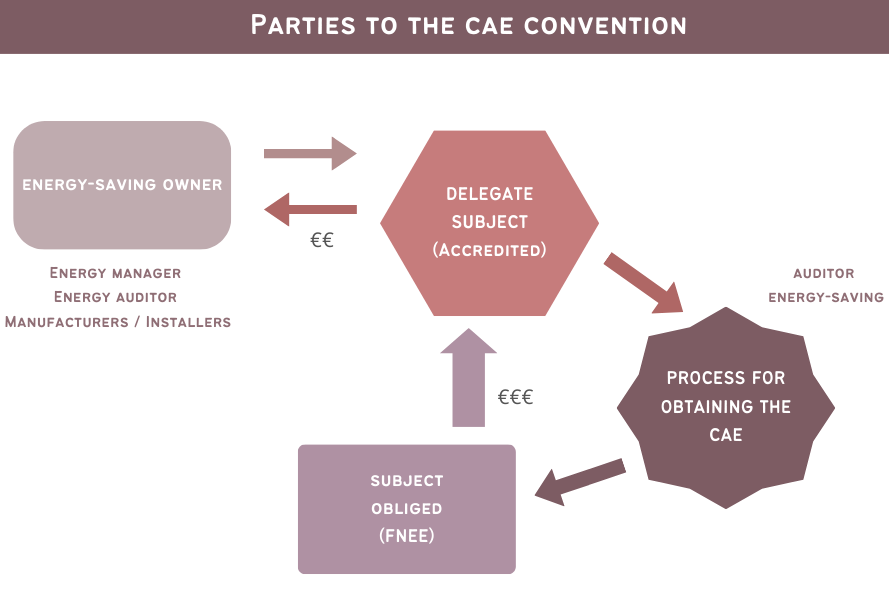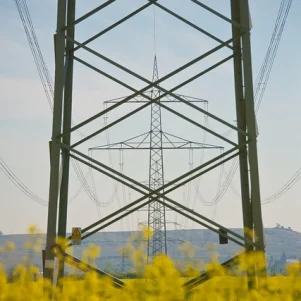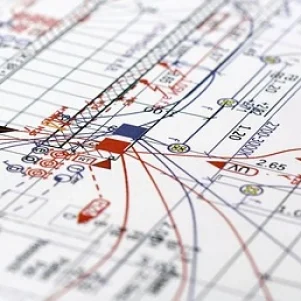Understanding CAE
Energy Savings Certificates (CAE) are electronic documents guaranteeing that an energy efficiency action has resulted in a new energy saving equivalent to 1 kWh. They enable the monetization of energy savings achieved through different measures like lighting, insulation, or upgrading equipment.
What is the CAE Agreement?
Energy savings eligible for conversion into CAEs and subsequent monetization can be traded between owners using what are known as CAE Agreements.
The CAE Agreement facilitates the sale or transfer of energy savings for monetization as CAEs. It’s a contract where the owner of energy savings transfers them to a third party in exchange for compensation, incentivizing energy efficiency.
Energy savings transferred through a CAE Agreement can arise from completed or planned energy efficiency actions, typically expressed in kWh/year.
Parties Involved in the CAE Agreement
The signatories of a CAE Agreement are primarily:
- The transferor or seller: The owner of the energy savings, e.g., a property or industrial owner.
- The transferee or buyer: The entity acquiring the energy savings to convert them into CAEs. This entity is usually an obligated or delegated subject per current regulations.
- Obligated Subject: As defined by Law 18/2014, obligated subjects are energy companies, wholesale petroleum operators, and wholesale liquefied petroleum gas operators, subject to intense regulation.
- Delegated Subject: Introduced in RD 36/23, a delegated subject is a legal entity, public or private, accredited by the National Coordinator of the CAE System, with the capacity to manage and delegate CAEs.

Content of the CAE Agreement
According to Article 11.2 of Order TED/815/2023, the minimum content of a CAE Agreement includes:
- Descriptive title of the energy-saving action
- Geographical location of the energy efficiency action
- Annual energy savings, actual or projected, in kWh
- Type of compensation offered
- Lifespan of the action and commitment to maintain it
- Exclusivity regarding energy savings
While legally minimal, this content lacks liability limitations or other crucial provisions, necessitating additional contractual clauses to ensure a secure energy savings transfer.
Conclusion
The legal framework established by RD 36/23 presents opportunities for energy sector companies specializing in energy valorization and savings. However, the minimum content of the CAE Agreement lacks the necessary protection for participants. Mariscal Abogados specializes in drafting such contracts, including clauses to safeguard client interests and ensure valid optimization and execution of CAEs or energy savings transfers.
If you need additional information regarding the CAE agreement in Spain,





